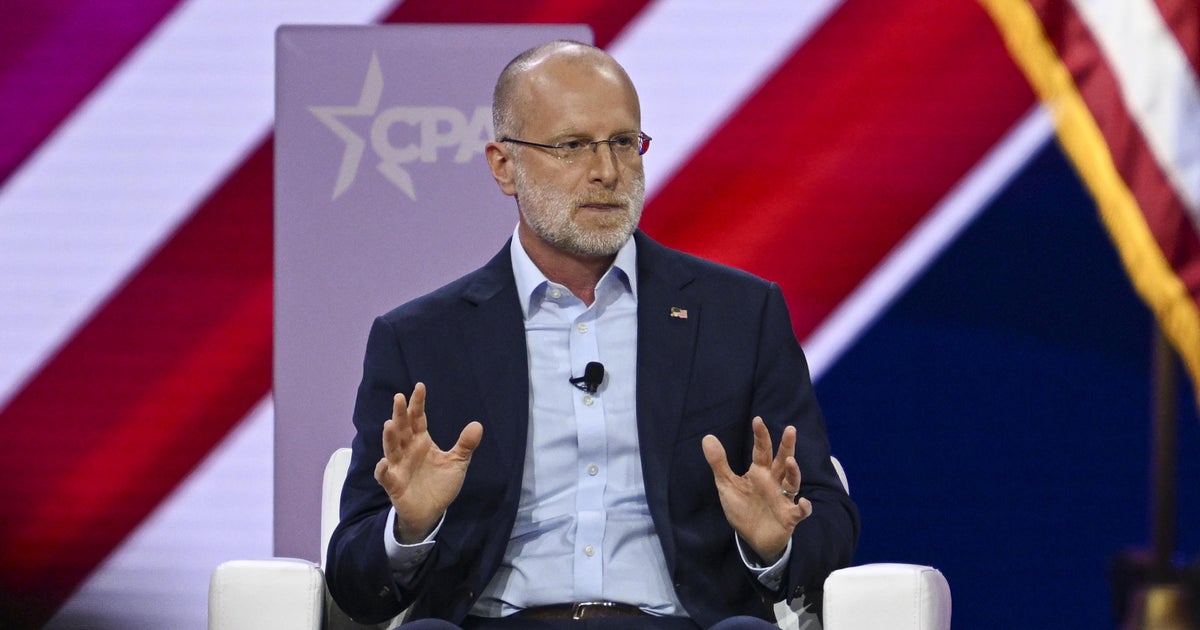What's behind Trump's latest tariff threats
President Donald Trump said Monday via Twitter that the U.S. will reinstate tariffs on steel and aluminum imported from Brazil and Argentina, opening a new battlefront in the global trade war. Here are five things to know about the president's move:
1. It may really be about the U.S.-China trade war.
Mr. Trump said in his tweets he decided to reinstate the previously waived levies because the two South American countries have been "presiding over a massive devaluation of their currencies," which he claimed is hurting American farmers.
The steel and aluminum tariffs, first imposed in March 2018, marked the official start of Mr. Trump's abrupt change in U.S. trade policy from previous administrations. The White House used a 1962 law designed for U.S. national security as leverage to renegotiate trade agreements with traditional allies and foes alike. The trade war with China followed later in 2018 and escalated this year.
Both Brazil and Argentina have benefited from America's trade war with China by filling agricultural demand once met by U.S. farmers. Once the administration began imposing U.S. tariffs on imported Chinese goods, China struck back by sharply cutting purchases of U.S. crops and turning to Brazil and Argentina, among others, to fill in the multibillion-dollar gaps.
That hurt U.S. farmers, like soybean growers and pork producers, who count on the huge Chinese market for a big part of their sales. Indeed, the U.S. has authorized $28 billion in government subsidies for farmers hurt by Mr. Trump's trade war.
The president's threat to impose steel and aluminum tariffs on Brazil and Argentina may be a way to pressure the two nations to curtail sales of agricultural goods to China, Monica de Bolle, a senior fellow at the Peterson Institute for International Economics, tweeted Monday.
"This is about China," de Bolle wrote. "It places both countries in a very fragile position. Not to mention that if you're concerned about China's growing economic influence in Latin America, imposing tariffs [on Brazil and Argentina] is at best counterproductive."
Through October, Brazil shipped $25.5 billion, including soybeans and pork, to China — more than 10 times the value of the steel and iron Brazil sold to the U.S., Bloomberg reported.
Brazil and Argentina are each grappling with tenuous economic conditions that weaken their currencies, Axios points out. Mr. Trump wants a weaker U.S. dollar because a strong dollar makes U.S. goods more expensive for overseas buyers, hurting American exports. The two nations were among a group of U.S. allies that Trump had exempted from steel and aluminum tariffs in March 2018.
2. Experts say the revived tariffs may be illegal.
Some experts said Monday that the law giving Mr. Trump authority to impose new tariffs doesn't apply because the timeframe in which to impose them has expired.
Mr. Trump first announced the metal tariffs in March last year under a 1962 law, known as Section 232, that allows tariffs if U.S. national security is threatened. Brazil and Argentina now export to the U.S. under a quota system.
The conversion of "quotas on Brazil + Argentina steel + alum is illegal," Jennifer Hillman, a Georgetown Law professor and former U.S. trade official said in a tweet Monday morning.
The law gives Mr. Trump "power to act only within set time frames" or 90 days from a March 8, 2018 Department of Commerce report and only under a security threat, Hillman added.
The U.S. has imported about 3.8 million metric tons of steel from Brazil so far in 2019, Bloomberg News reported, citing U.S. Census Bureau data. Steel from Brazil makes up about 3.5% of the 110 million tons consumed in America annually, according to the figures. Steel and iron are the second-biggest U.S. import from Brazil, behind crude oil, Bloomberg noted.
The quotas on Brazil are nearly filled, Georgetown's Hillman observed. That makes a switch to tariffs "totally inconsistent" with the "alleged goal of protecting national security from imports," she said.
3. U.S. metal companies could benefit from higher prices.
Shares of U.S. steel companies rose on Mr, Trump's tweets: AK Steel Holding spiked 6.9%, U.S. Steel climbed about 3.8%, and Steel Dynamics was up 1.4% Monday.
Selling prices for steel generally were already expected to rise for U.S. Steel, according to a November 1 transcript from the company's quarterly earnings call with analysts. U.S. Steel earlier this year cut about 200 jobs in Michigan as demand slipped amid a slump in U.S. manufacturing.
But U.S. Steel was among companies that already raised prices multiple times for some kinds of steel in November, according to Argus Media, which follows the industry.
Raising raw material prices means manufacturers will pay higher prices.
4. U.S. manufacturing is already in recession.
U.S. manufacturing slipped for the fourth consecutive month, damaged by trade conflicts and a weakening global economy, the Institute for Supply Management, an association of purchasing managers, said Monday.
New orders, production and hiring all dropped, and export orders fell in November after rising in October. Businesses are reluctant to invest until they have a clearer idea whether, when and how Mr. Trump's trade conflicts will end. ISM said those that responded to the survey put global trade concerns at the top of the list across industries.
"We expect trade policy uncertainty to continue weighing on manufacturing activity into the new year," economists from Oxford Economics wrote in a note Monday.
5. Pressure is building for other trade agreements.
Mr. Trump's administration is negotiating with China for a preliminary deal to ease their trade war. But the two nations have yet to come to agreement amid complex negotiations after an October announcement of a "phase one" pact in the works.
Another round of U.S. tariffs on nearly $160 billion in Chinese imports is due to take effect December 15, this time hitting a range of consumer goods, including mobile phones and electronics. If it takes effect, nearly every Chinese import will be taxed as they enter U.S. ports.
U.S. Commerce Secretary Wilbur Ross told Fox News on Monday Mr. Trump "has made quite clear he'll put the tariffs in" if no agreement is reached.
Tariffs are paid by companies that import U.S. goods, not countries like China. To absorb the cost, some companies may pass on the higher tax to consumers.
The White House is also waiting for Congress to approve a revamped version of the North American Free Trade Agreement, rebranded as the U.S.-Mexico-Canada Agreement, or USMCA.
Final terms for the USMCA could be announced this week and the agreement may be signed by December, the Washington Post reported Friday.



